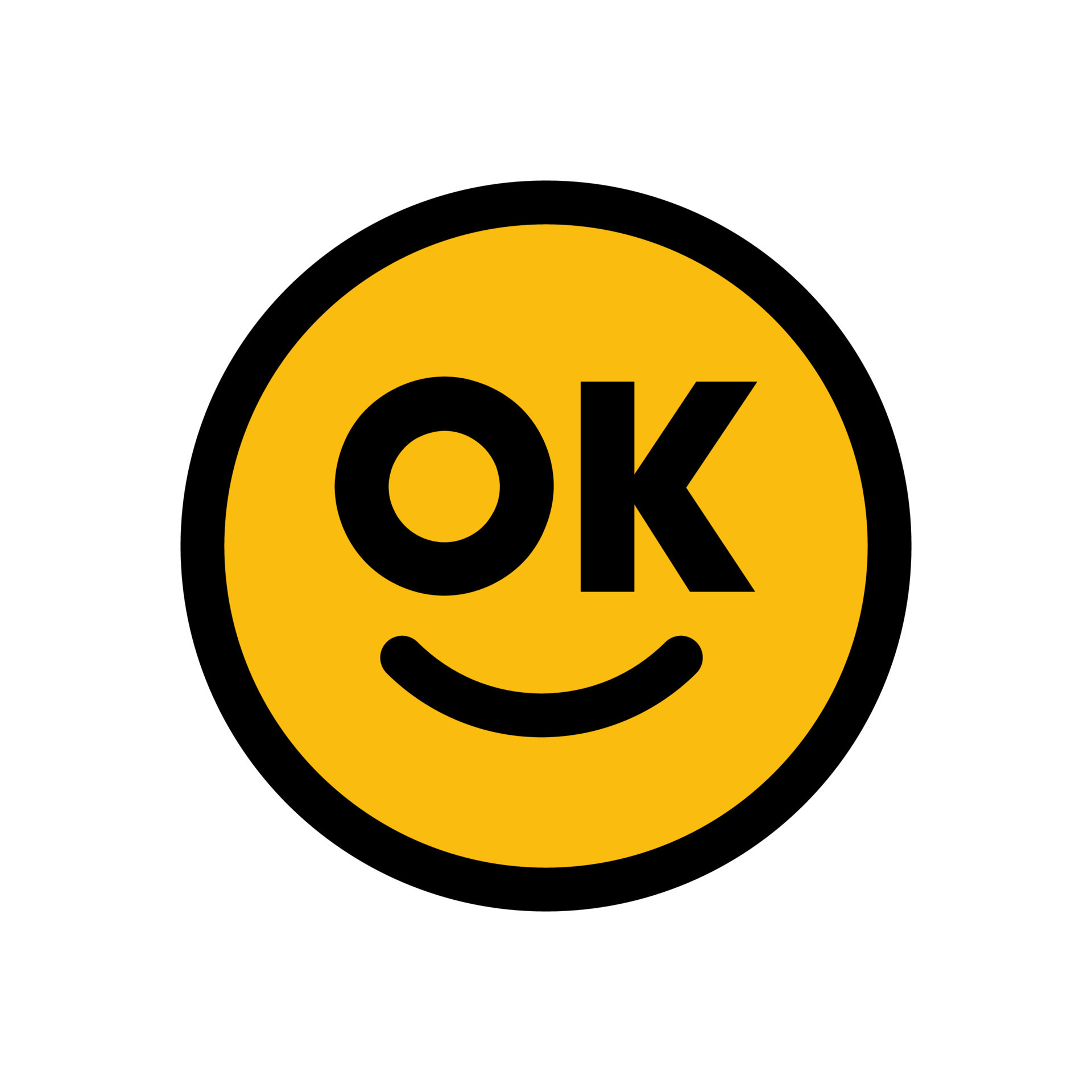Unraveling OK: The Surprising Journey Of A Universal Word
It's a word we use countless times a day, often without a second thought. From quick confirmations to casual agreements, "ok" (or "okay") has woven itself so deeply into the fabric of global communication that its absence would leave a noticeable void. But have you ever paused to consider where this seemingly simple two-letter powerhouse came from, what it truly means, or the fascinating journey it undertook to become one of the most recognized words on the planet? Its ubiquity is astounding, transcending languages and cultures, serving as a linguistic bridge in countless interactions.
This article delves into the intriguing history, diverse meanings, and widespread usage of "ok," exploring its disputed origins, its evolution through various spellings, and its surprising appearances in everything from historical newspapers to modern digital platforms. Prepare to uncover the layers of a word that is far more complex and compelling than its brevity suggests, demonstrating how a simple expression can hold profound significance in our daily lives and beyond.
Table of Contents
- The Ubiquity of "OK": A Global Phenomenon
- What Does "OK" Truly Mean? Unpacking Its Core Definitions
- The Great Debate: Where Did "OK" Come From?
- Spelling Variations and Their Significance
- How We Use "OK" in Everyday Language
- "OK" in Pop Culture and Beyond
- The Curious Case of "OK" in Digital Spaces
- The Enduring Legacy of "OK": A Simple Word, Profound Impact
The Ubiquity of "OK": A Global Phenomenon
Think for a moment about how many times you’ve encountered or used the word "ok" today. It could have been in a text message, a casual conversation, a business email, or even a system prompt on your computer. This small, unassuming word, pronounced /ˌoʊˈkeɪ/, is an English word that originated in American English, yet its reach extends far beyond the Anglophone world. It’s a testament to its versatility and utility that it has been adopted into countless languages, often retaining its original spelling and pronunciation. Its primary function is to denote approval, acceptance, agreement, or assent, but as we'll see, its meanings are far more nuanced. The remarkable thing about "ok" is its chameleon-like ability to fit into almost any context. Whether you're confirming a plan, acknowledging receipt of information, or simply expressing that something is satisfactory, "ok" serves as a quick, efficient, and universally understood linguistic tool. This widespread adoption and effortless integration into daily discourse make it one of the most fascinating linguistic success stories of the modern era.What Does "OK" Truly Mean? Unpacking Its Core Definitions
While "ok" is often perceived as a simple word, its semantic range is surprisingly broad. At its heart, "ok" signifies a state of being "all right." However, this seemingly straightforward definition branches out into several key areas, each with its own subtle implications. Understanding these nuances is crucial to appreciating the full expressive power of this little word.Agreement, Acceptance, and Approval
One of the most common uses of "ok" is to express agreement, acceptance, or approval. When someone asks, "Are you ready to go?" and you respond with "Ok," you are signaling your readiness and concurrence with the proposed action. Similarly, if a proposal is presented and you say, "That sounds ok to me," you are giving your approval. This usage is fundamental to facilitating smooth communication and cooperation. It acts as a linguistic nod, indicating that everything is in order and aligned with expectations. It can often be used instead of the word "yes," especially in informal contexts, providing a slightly more casual and less emphatic affirmation.Satisfactory and Adequate
Beyond simple agreement, "ok" also serves to signify that something is satisfactory or adequate. If you ask a friend how their new car is, and they reply, "It's ok," they are indicating that it meets a certain baseline standard, neither excellent nor terrible, but perfectly acceptable. This meaning is about adequacy rather than enthusiasm. It suggests that while there might be room for improvement, the current state is sufficient. This particular shade of meaning allows for a quick assessment without needing to elaborate on specifics, making "ok" a highly efficient descriptor in everyday conversation. It stands in direct contrast to "bad," suggesting a state of goodness or correctness, even if it's not superlative.The Great Debate: Where Did "OK" Come From?
For many years, the origin of "ok," one of the most common words in languages around the world, was hotly disputed. Numerous theories about the word’s beginnings and original meaning circulated, ranging from the plausible to the utterly fantastical. This linguistic mystery captivated scholars and laypeople alike, fueling debates and research into its etymological roots. The journey to pinpointing its true origin is as fascinating as the word itself, showcasing how language evolves and how historical quirks can leave an indelible mark.The Boston Newspaper Theory: A Humorous Origin
The most widely accepted theory regarding the origin of "ok" points to a humorous fad in 19th-century American newspapers. In 1839, the Boston Morning Post published an article containing the abbreviation "o.k." for "all correct." This seemingly innocuous usage was part of a trend among young, educated writers of the time to intentionally misspell words for comedic effect and then abbreviate them. "All correct" would thus become "oll korrect," abbreviated to "o.k." This was similar to other humorous abbreviations like "k.g." for "no go" (know go) or "o.w." for "all right" (oll wright). The specific instance often cited is from an article on March 23, 1839, where the editor used "o.k." in a satirical piece about a political opponent. From this seemingly obscure beginning, the term gained traction, especially when it was picked up and popularized by politicians. Its use by Martin Van Buren, whose nickname was "Old Kinderhook" (O.K., after his birthplace Kinderhook, New York), during his 1840 presidential campaign significantly boosted its public profile. Campaign slogans like "Vote for O.K." made the abbreviation a household term, firmly embedding it into the American lexicon. This historical context highlights how a playful linguistic experiment can, through serendipitous events, become a permanent fixture in language.Beyond Boston: Other Contenders and Disputed Origins
While the Boston newspaper theory is the most widely accepted, it wasn't the only one proposed. For years, various alternative theories vied for credibility, some more plausible than others. One persistent, though largely debunked, theory suggested a connection to the Choctaw language. It was posited that "ok" derived from the Choctaw word "okeh," meaning "it is so." While this theory gained some traction, particularly in the mid-20th century, linguistic evidence and historical records have largely disproven it in favor of the Boston origin. The presence of similar-sounding words in other languages often leads to such speculative connections, but rigorous etymological research is key to separating fact from folklore. Other theories ranged from African languages (like "waw-kay" meaning "yes, indeed" in Wolof) to Greek ("olla kalla" meaning "all good") and even French ("au quai" meaning "to the dock," implying readiness). However, none of these theories have the documented historical evidence that supports the "oll korrect" origin. The meticulous work of linguists and etymologists, sifting through old newspapers, diaries, and public records, was crucial in establishing the Boston Morning Post as the likely birthplace of this iconic word. The journey to uncover its true roots underscores the complexity of linguistic archaeology.Spelling Variations and Their Significance
The word "ok" has several spelling variations, including "okay," "okeh," "o.k.," and many others. What's particularly interesting is that these variations are largely interchangeable in both informal and formal writing scenarios. In fact, "ok" is often considered the original preferred spelling, stemming directly from its abbreviated origin. The addition of "ay" to form "okay" is a later development, likely influenced by phonetics to make the pronunciation more explicit for those unfamiliar with its initial abbreviation. The flexibility in spelling reflects the word's organic growth and adaptation within the English language. While "ok" and "okay" are by far the most common and widely accepted, the existence of "okeh" (sometimes associated with the Choctaw theory, though not its origin) and the punctuated "o.k." reminds us of its historical journey. For most practical purposes today, whether you opt for "ok" or "okay," you'll be understood perfectly, making it a remarkably adaptable and user-friendly term. This linguistic freedom allows speakers and writers to choose the variation that best suits their stylistic preference or the formality of the context.How We Use "OK" in Everyday Language
The versatility of "ok" extends beyond its core meanings into a wide array of practical applications in daily conversation and writing. Its informal nature makes it incredibly useful for quick, efficient communication, but its utility also stretches into more formal contexts when used judiciously.From Confirmation to Emphasis
"Ok" can be used to seek confirmation, as in, "Is everything ok?" or "Are you ok?" Here, it functions as a gentle inquiry into well-being or the state of affairs, inviting an affirmation or clarification. It’s a polite and non-intrusive way to check in. It also serves to express agreement, approval, or understanding. If someone explains a complex process, a simple "Ok, I get it now" signals comprehension. When a plan is proposed, "Ok, let's do that" conveys agreement and readiness to proceed. This makes "ok" a crucial tool for maintaining conversational flow and ensuring mutual understanding. Furthermore, "ok" can be used for emphasis at the beginning of a statement, often to transition or to draw attention. For instance, "Ok, so here's the plan..." sets the stage for what's to follow, signaling a shift in topic or the start of an important point. This introductory "ok" prepares the listener for new information or a change in direction, making it an effective rhetorical device. It can also be used to show that you agree with something or agree to do something, acting as a quick verbal or written commitment. For example, "Ok, I'll send that email right away.""OK" in Pop Culture and Beyond
The word "ok" has transcended its linguistic function to become a significant element in popular culture, art, and even political discourse. Its simplicity and universal recognition make it a powerful tool for conveying a range of emotions and situations. Consider its appearance in the film "Silver Linings Playbook." The phrase "I'm okay" or "Are you okay?" often carries significant emotional weight, reflecting states of vulnerability, reassurance, or resilience. In such contexts, "ok" moves beyond mere agreement to express deeper human conditions. It's a shorthand for emotional stability or a plea for it, demonstrating its capacity to carry profound subtext. Musicians like Pete Seeger, a prominent American folk singer and activist, have also incorporated "ok" into their work, often to convey a sense of normalcy, acceptance, or resilience in the face of adversity. Its use in songs or speeches can ground a message in everyday reality, making it relatable and accessible to a broad audience. The word's informal yet impactful nature makes it ideal for capturing the essence of human experience in artistic expression. From casual dialogue to pivotal plot points, "ok" serves as a linguistic workhorse, silently supporting narratives and emotional arcs.The Curious Case of "OK" in Digital Spaces
The journey of "ok" doesn't stop at its etymology or its use in traditional media. In the digital age, "ok" has found new life and unexpected manifestations. One particularly interesting example, though distinct from the English word's direct lineage, is its adoption by the Russian social network "Одноклассники.ру" (Odnoklassniki.ru). This platform, often simply referred to as "ОК" or "OK.ru," is a major social media site in Russia and former Soviet republics, primarily used for connecting with old friends and classmates. While "ОК" in this context is a transliteration of the Cyrillic letters and a convenient abbreviation for the platform's name, its resonance with the universally understood English "ok" is undeniable. The platform leverages the positive connotations of "ok" – of things being "all right," of connection, and of pleasant interaction. "Приходите в ОК, делитесь своими эмоциями" (Come to OK, share your emotions) is a common invitation, subtly reinforcing the idea of a welcoming and agreeable online space. This adoption by a major non-English digital entity highlights how the phonetic simplicity and positive meaning of "ok" can be repurposed and reinterpreted across linguistic and cultural boundaries. It demonstrates the word's remarkable adaptability and its ability to serve as a recognizable and friendly identifier even in contexts far removed from its original Bostonian roots. This modern digital usage underscores the word's global impact, proving that a simple abbreviation can become a powerful brand, synonymous with connection and contentment in the online realm.The Enduring Legacy of "OK": A Simple Word, Profound Impact
From its humble beginnings as a humorous misspelling in a 19th-century Boston newspaper to its status as a global linguistic phenomenon and even a digital brand, the journey of "ok" is nothing short of remarkable. It stands as a testament to the dynamic nature of language, showcasing how words can evolve, adapt, and transcend their original contexts to become indispensable tools for communication. Its primary meanings, indicating agreement, acceptance, or approval, and signifying that something is satisfactory or adequate, are fundamental to human interaction. The ability of "ok" to be used interchangeably with "okay" and its other variations, in both informal and formal settings, speaks to its inherent flexibility. It’s a word that can convey a spectrum of meanings, from a simple affirmative to a nuanced expression of emotional state. Its presence in popular culture, from films to music, further solidifies its place as more than just a word, but a cultural touchstone. And its unexpected adoption in global digital spaces, like Odnoklassniki.ru, illustrates its universal appeal and adaptability across diverse linguistic landscapes. The next time you utter or type "ok," take a moment to appreciate the incredible journey this little word has undertaken. It’s a powerful reminder that even the simplest elements of our language carry a rich history and a profound capacity for connection. What are your thoughts on the surprising origins and widespread use of "ok"? Share your insights or favorite "ok" moments in the comments below! If you found this exploration fascinating, consider sharing it with friends or delving into other articles on our site that uncover the hidden stories behind everyday words.


Detail Author:
- Name : Mrs. Sadye Abshire
- Username : alberta.wiza
- Email : jaycee61@kovacek.com
- Birthdate : 1993-03-07
- Address : 2951 Shields Knoll Apt. 654 Brekkefort, MN 37826
- Phone : 413-505-4263
- Company : Reynolds and Sons
- Job : Real Estate Sales Agent
- Bio : Possimus corrupti quo dolorem. Eum qui assumenda sapiente inventore eos. Sunt ipsa repellat et architecto.
Socials
linkedin:
- url : https://linkedin.com/in/bechtelar1992
- username : bechtelar1992
- bio : Tempora ea recusandae dolores sed ut.
- followers : 4598
- following : 2943
tiktok:
- url : https://tiktok.com/@reanna.bechtelar
- username : reanna.bechtelar
- bio : Perspiciatis aliquid saepe doloribus autem.
- followers : 3444
- following : 1721
instagram:
- url : https://instagram.com/bechtelarr
- username : bechtelarr
- bio : Laudantium molestiae in enim unde aut quasi sint. Nam ut sunt perferendis.
- followers : 6177
- following : 2909
facebook:
- url : https://facebook.com/reanna_id
- username : reanna_id
- bio : Molestiae sapiente quia optio autem omnis.
- followers : 2224
- following : 1748